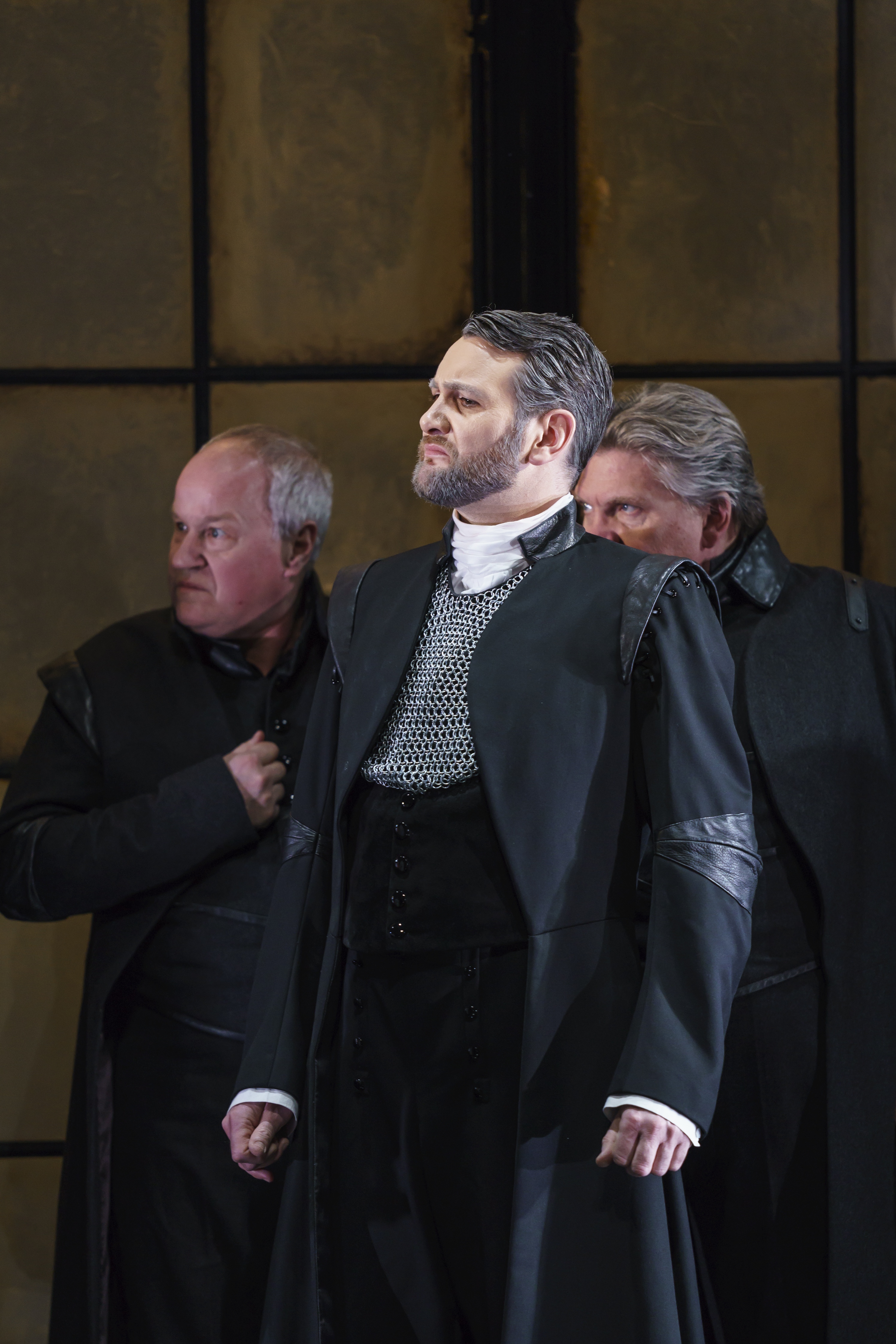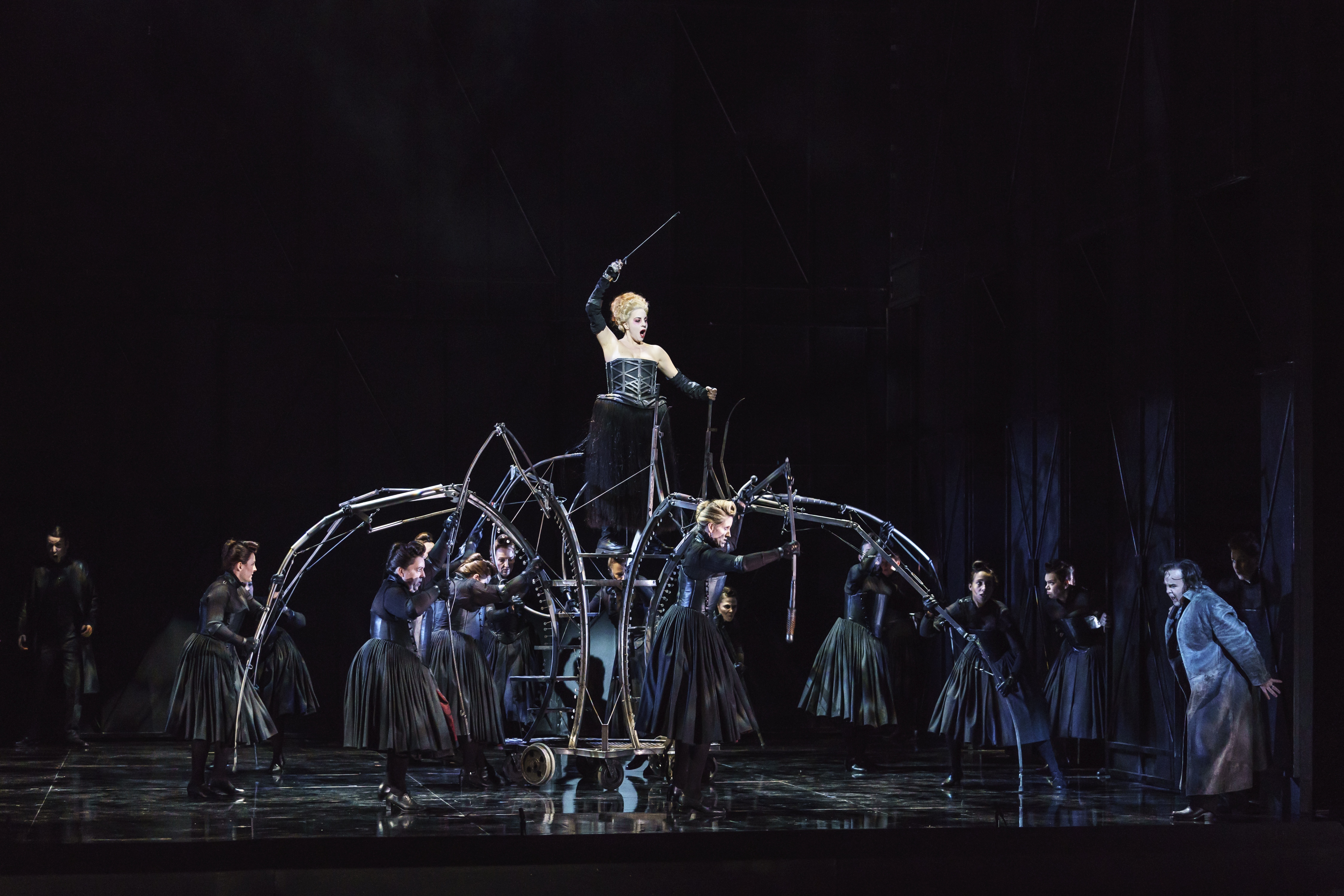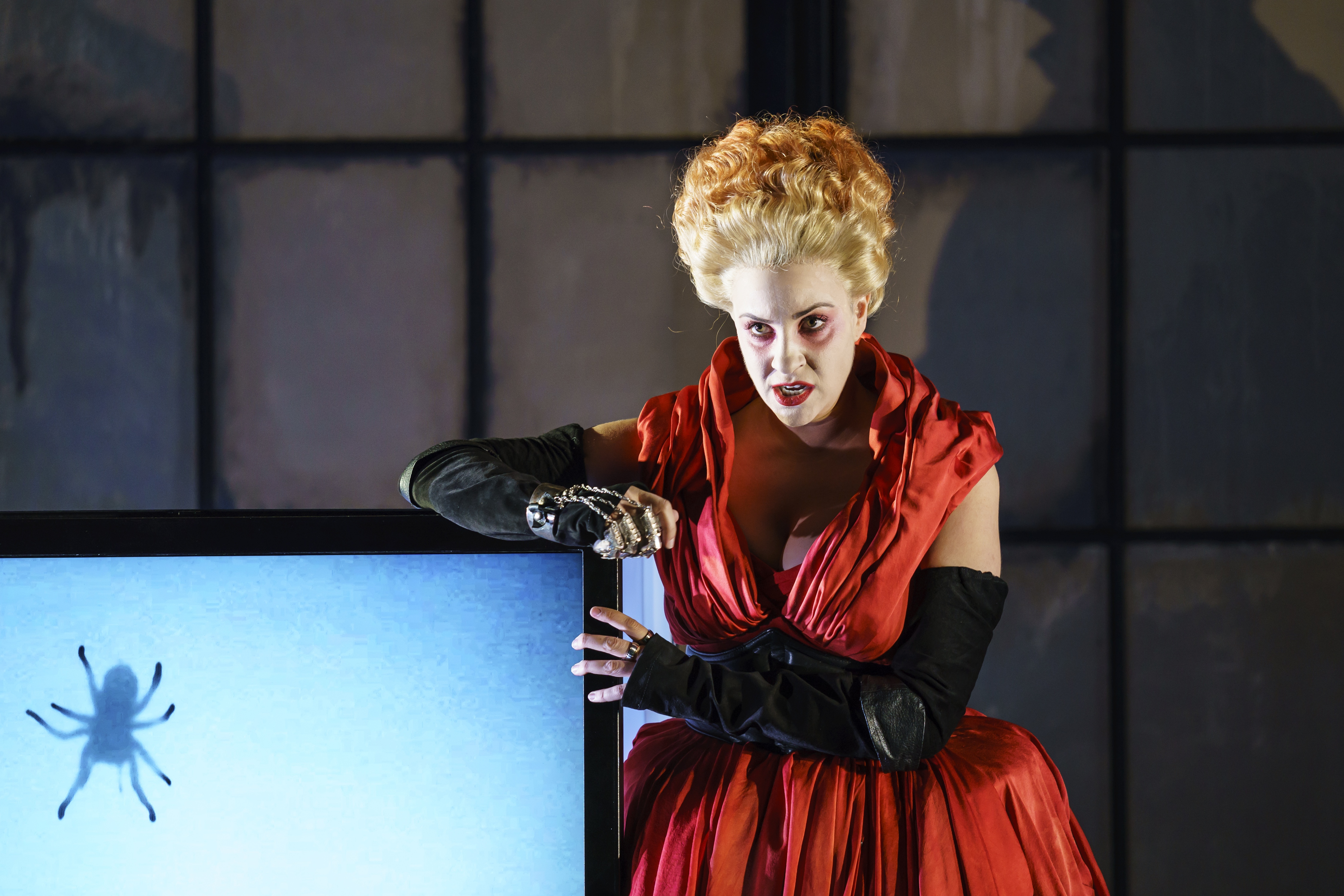Theatre Royal Plymouth, April 2019
When a work makes a really strong impression there is always a danger that one’s memory may be at fault. Experiencing the WNO Donizetti Tudor Trilogy in 2013-14 I had been bowled over by Roberto Devereux but would it live up to my memory? It did – and given the unplanned change of cast – even more so. With the unfortunate indisposition of Barry Banks, Devereux was sung by Robyn Lyn Evans. It was revelatory. A young singer, with the virility and passion the part needs but also the high lyricism in the voice to carry off all the emotion and charm the character requires. It was one of the most exciting evenings I can recall in recent years of many, many performances.
Robert Lyn Evans
Not that the rest of the cast were in his shadow. Justina Gringyte’s young and often fragile Sara comes into her own towards the end when she accepts the reality of the situation, though she has little chance given the misogynistic aggression of Rhys Jenkins’ Nottingham – himself standing in at the last minute and making much of a nasty character.
At the heart of the work is Joyce El-Khoury’s Elisabetta. If she is not mad at the start she certainly is at the end, and Alessandro Talevi’s often surreal approach helps us to navigate the twists and turns of her increasingly delusional thinking. The parallels with Brexit – a leader who does not listen and puts their personal feelings before the needs of their country – were uncomfortably obvious, even when hugely enjoyable.
James Southall drove his forces with enormous enthusiasm and fresh, intensive playing. The Chorus – as ever – were splendid and obviously loving the spider.
Joyce El-Khoury’s Elisabetta
The strength of this evening rather put the other two into the shade though David Poutney’s new Un ballo in maschera was engaging and challenging in just the right amount as well as being very well sung. Poutney has a love not just of theatre but of the theatrical so it was no surprise that Riccardo emerged in the first scene from a coffin and spent some considerable time there. Added to this, the whole set was made up of tiny proscenium arches, banked up as walls which moved smoothly to convey different spaces. All the time, however, we were aware that characters were performing, both to seen and unseen audiences. The moveable seats on stage constantly reminded us that we are watching a performance, our minds are being controlled. There is no problem then at the end where Riccardo is not actually stabbed – and it is not a case that the wrong person is stabbed – for nobody is stabbed because that does not happen in theatre. The singer pretends to die and then receives a curtain call, so why pretend they were dead in the first place when we don’t want them to be? Poutney takes this to its logical conclusion and allows Riccardo to watch his own death and the sadness it brings, even though he is still very much alive.
Gwyn Hughes Jones is a likeable Riccardo with a fine top to the voice and a ready humour. He is well matched by Julie Martin’s androgynous Oscar – strongly sung and flamboyantly acted. Sara Fulgoni has an easier task than usual as Ulrica as she is obviously a favourite with the court unlike Mary Elizabeth Williams’ strongly characterised Amelia – the only person we really feel concerned about as she is the only one with any heart, a reality which is clearly evident in her passionate singing.
Roland Wood sang Renato for the first half but was indisposed for the second, miming on stage while Phillip Rhodes sang from the wings. This proved to be more than a simple cover and as with Robyn Lyn Evans above we may hopefully hear a lot more from both singers.
Gareth Jones drove his forces with aplomb and made the whole an unexpectedly happy event.
Dominic Cooke’s production of The Magic Flute is very familiar though it still has many strengths. It lends itself particularly to strong characterisation which it certainly got from Mark Stone’s Papageno. His diction is exemplary – the sort of style you expect in operetta but rarely get these days – as is his sense of humour. He was well matched by Anita Watson’s Pamina, their bei mannern being a highlight of the first half. Ben Johnson’s Tamino is fluently sung but lacks passion so that it was difficult to see quite what Pamina saw in him. Samantha Hay was a strong Queen of the Night (though wouldn’t it be wonderful just once to hear it like Florence Foster Jenkins?!) and Phillip Rhodes an impressive speaker.
The production does not water-down the strong misogynistic content of the text nor ameliorate Sarastro’s arrogance. It does however, as usual, side-step the problem of Monostatos no matter how well sung by Howard Kirk.
Damian Iorio’s conducting was fluid and persuasive even from Plymouth’s deep pit – splendid for Verdi but a bit too cave-like for Mozart.



